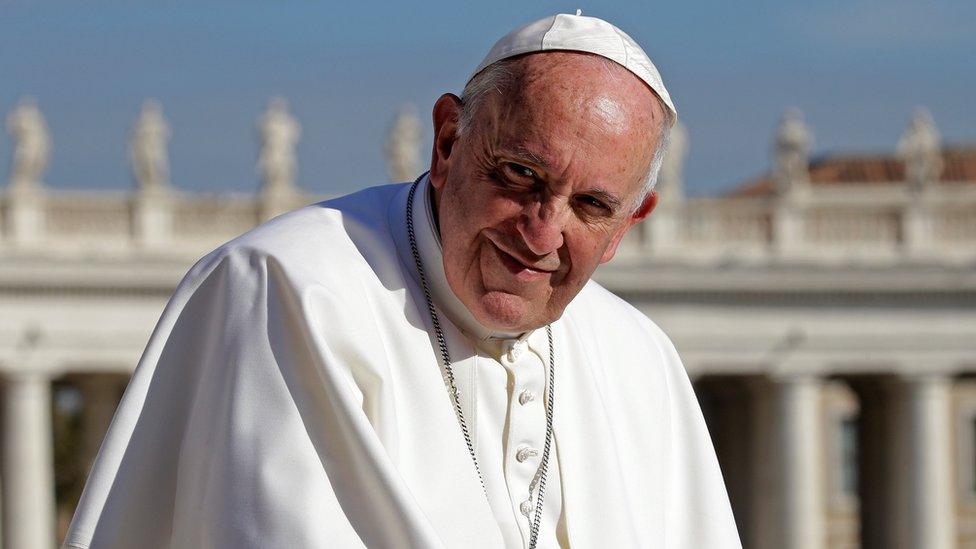Pope Francis urges 'freedom' for Church on Cuba visit
- Published
Pope Francis met Cuban President Raul Castro
Pope Francis has called for the Church in Cuba to have "the freedom and the means" to pursue its mission, on his first visit to the island.
He also hailed improving ties between the US and Cuba as "an example of reconciliation for the whole world".
The Pope was greeted by President Raul Castro after landing in the capital, Havana.
The Pope is due to celebrate Mass on Sunday in Havana's iconic Revolution Square.
He will spend four days in Cuba before flying to the US.
Following his arrival on Cuba on Saturday, thousands lined the route of the Pope's motorcade to the home of the Vatican's ambassador to Cuba.
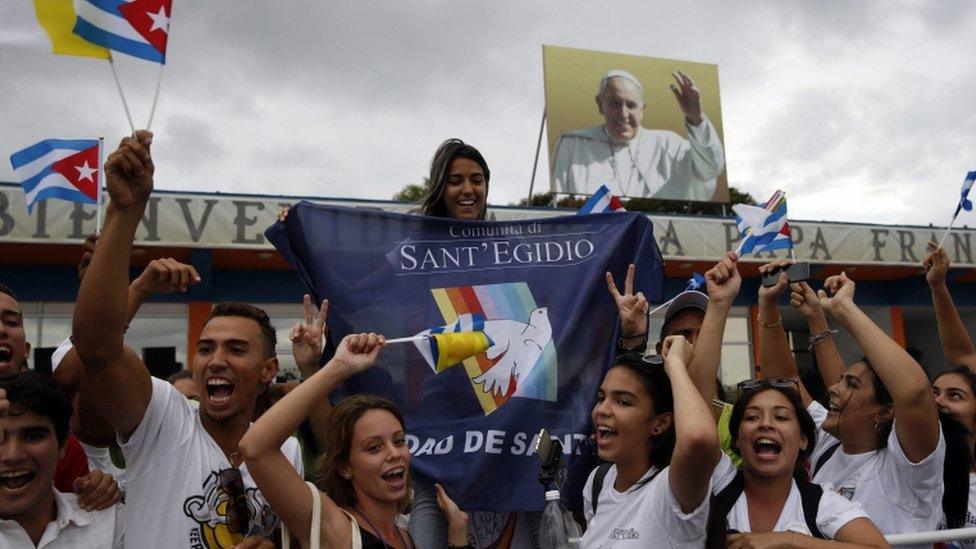
Ahead of Pope Francis's visit, streets were newly paved in Havana
Pope Francis - the first pontiff to hail from Latin America - is credited with helping the recent thaw in diplomatic relations between Cuba and the US.
Mr Castro has thanked the Pope for his contribution.
Speaking at the airport alongside President Castro, Pope Francis urged further support for Cuba's Catholics "so that the Church can continue to support and encourage the Cuban people in its hopes and concerns, with the freedom, the means and the space needed to bring the proclamation of the kingdom to the existential peripheries of society".
He also called on Cuba and the US to "persevere on the path" of detente.
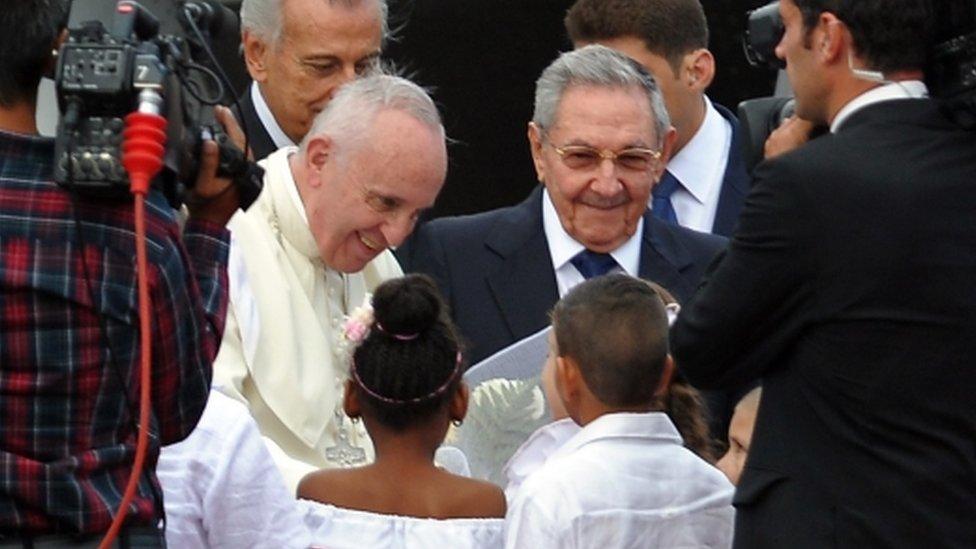
On landing Pope Francis was greeted by President Raul Castro and a group of Cuban children
On Thursday the Vatican said it hoped the Pope's visit would help bring an end to the 53-year-old US embargo and lead to more freedom and human rights on the island.
Pensioner Diego Carrera told AP the visit was "like a breath of hope blowing over Cuba" because of the role that the Pope played in the reestablishment of relations with the US.
On Friday the US announced eased restrictions on business and travel with Communist Cuba, the latest move by President Barack Obama to improve relations.

At the scene: Will Grant, BBC News, Havana
Disembarking to chants of "Christ lives" and other religious slogans, the Pope was welcomed off the plane by Raul Castro. He was quick to praise the pontiff for his leadership on issues of climate change and poverty and thanked him for his role in brokering talks with Washington.
The Pope said he was in Cuba to "support and encourage the Cuban people in their hopes and concerns". While he didn't shy away from using the word "freedom" in his initial address, he is still unlikely to publically berate the Cuban government over its human rights record - choosing instead a more pragmatic approach.
As the first Latin American pope, he's likely to receive a unique welcome from the Cuban people - many of whom remember when a commitment to atheism was a key part of the constitution.

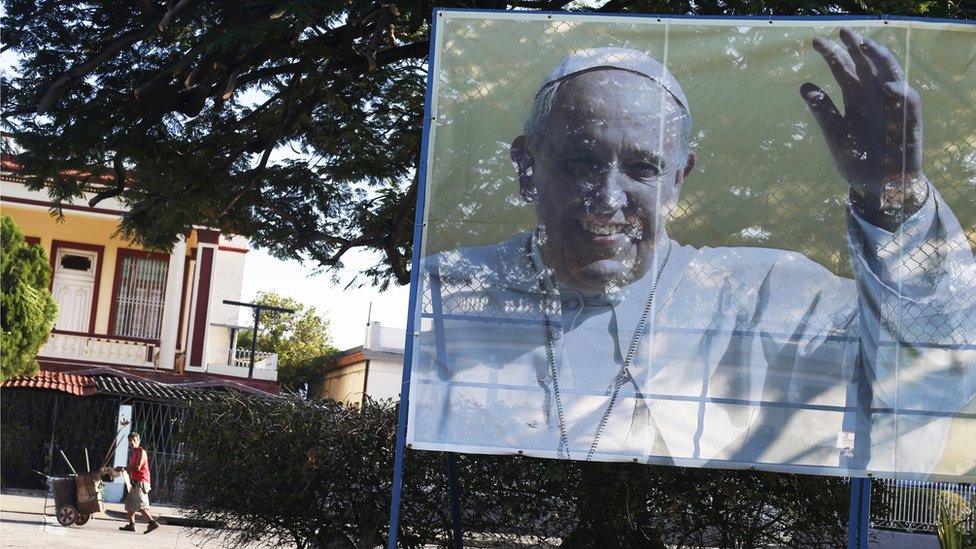
The visit will be third time a pope has visited the island
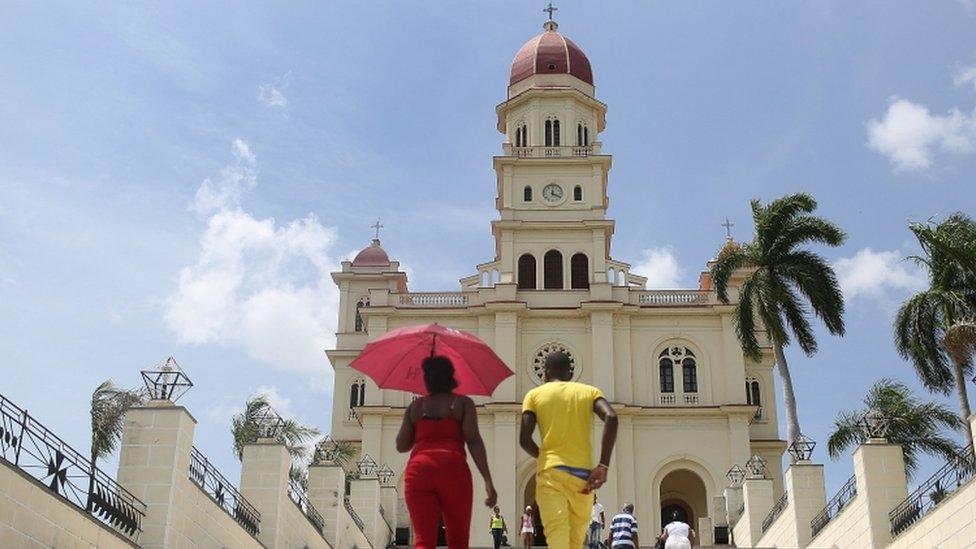
Pope Francis will celebrate Mass at El Cobre church in Santiago de Cuba
Cristina Fernandez Kirchner, president of the Pope's native Argentina, also arrived on the island on Saturday and will attend the Mass in Revolution Square.
Workers have been building a huge altar and stands for the congregation and choir on the square.
Streets have been newly paved in Havana, and the cathedral has been renovated.
In the city of Holguin where the Pope will celebrate Mass on Monday, the cathedral has been repaired and repainted.
Nearly 1,000 Cuban and foreign journalists were expected to cover the visit.
In 1998 Pope John Paul II became the first Pope to visit the island, saying: "May Cuba... open itself up to the world, and may the world open itself up to Cuba."
His predecessor, Pope Benedict XVI, also visited Cuba in 2012.
Francis's trip will later take him to the US, which he will also be visiting for the first time since his election to the papacy.
- Published18 September 2015
- Published11 September 2015
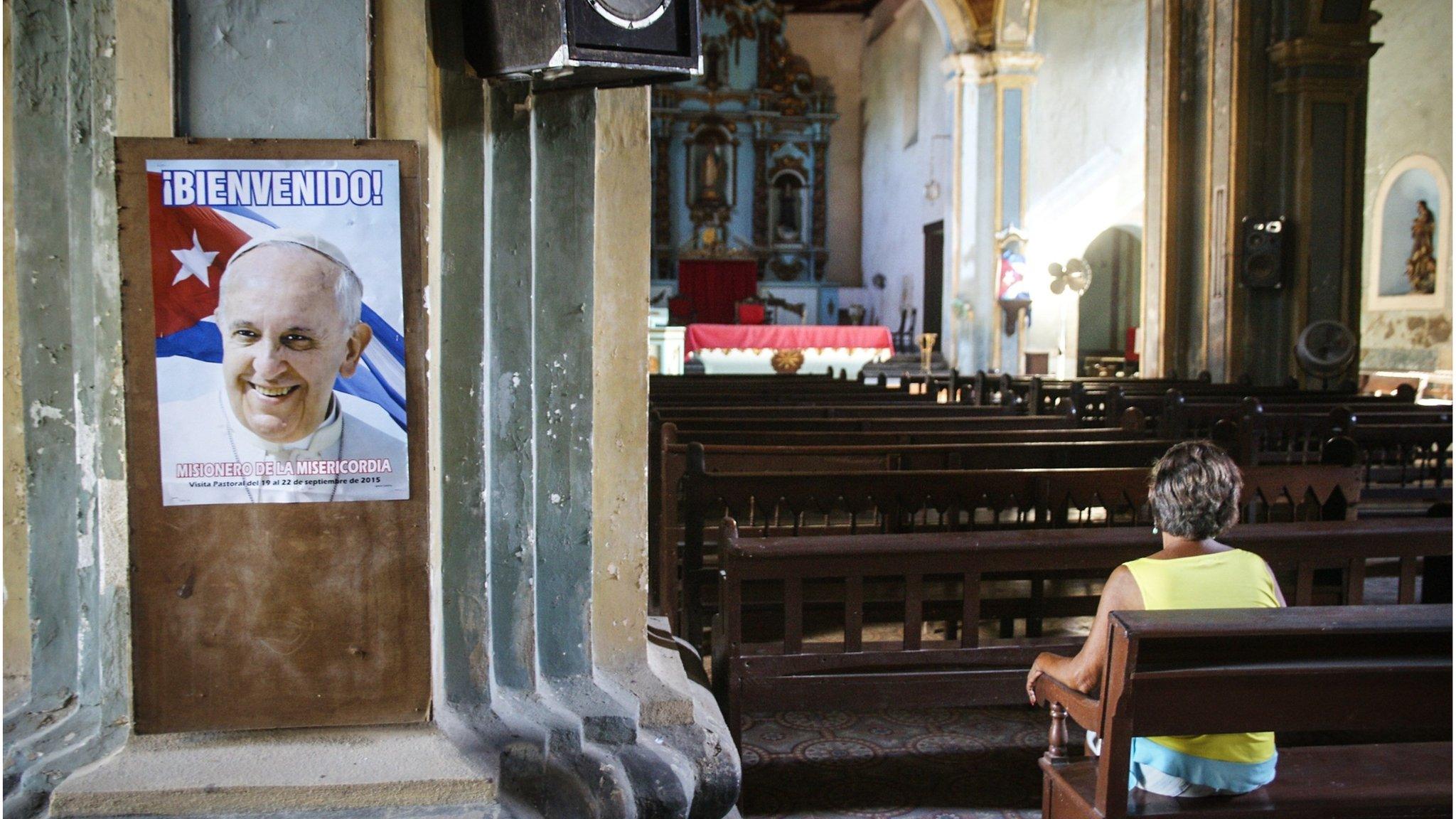
- Published19 September 2015
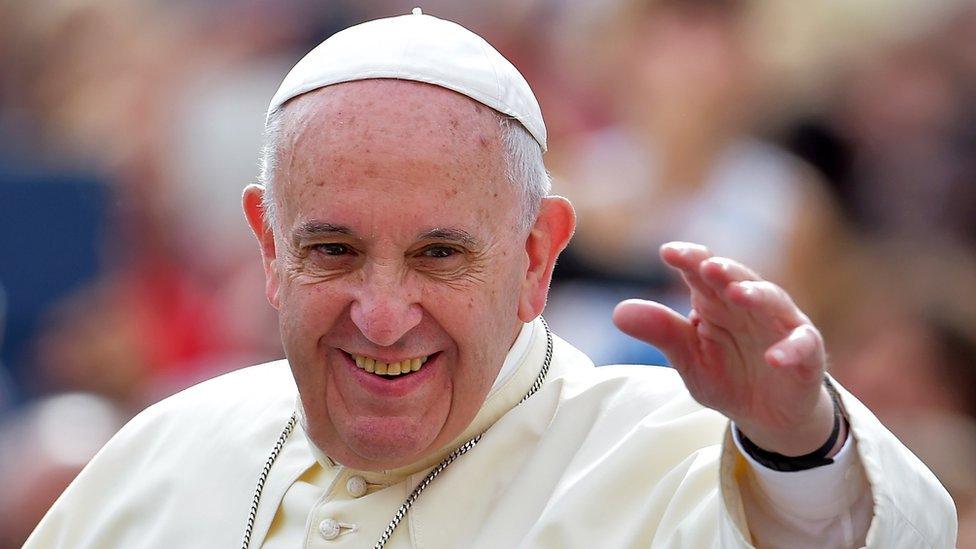
- Published24 December 2014
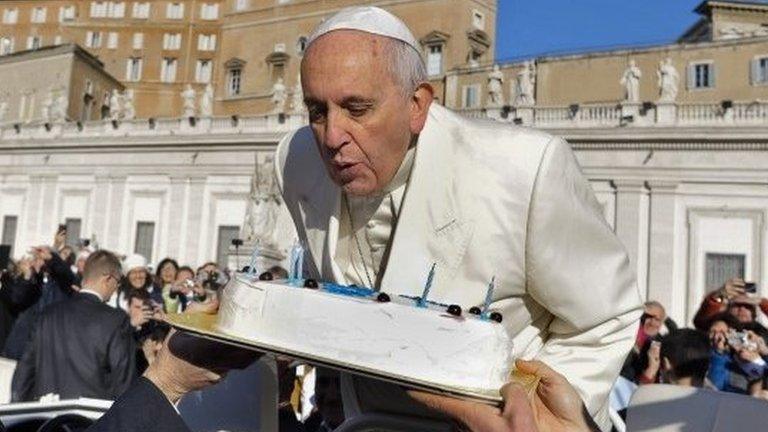
- Published28 October 2022
